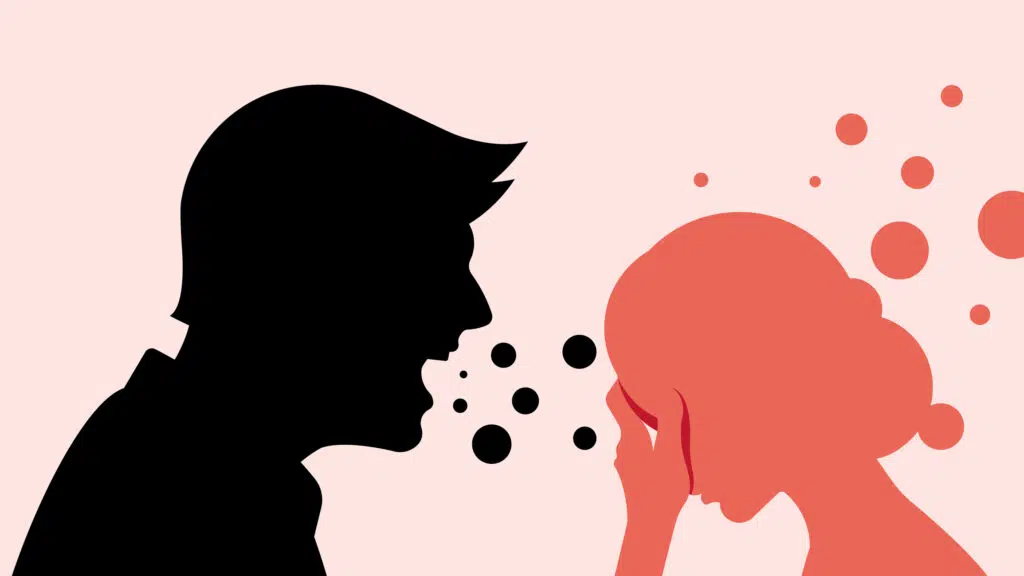How Do You Know When It’s Time for Couples Therapy?

It’s normal for couples to go through ups and downs. Sometimes, there’s a notion that meeting your partner is the hard part, and then it’s easy going forward. The reality is that relationships take effort and work from both partners. Whether you’re going through conflict, dealing with an affair, struggling to communicate, or need a tune-up, couples therapy can form an essential part of a healthy relationship.
When to Seek Couples Therapy
It’s very common for couples to ask when they should consider therapy. What are the signs that you and your partner should speak to a couples therapist?
Dr. Lauren Eavarone, MS, LMFT, a licensed marriage and family therapist in New York City, says, “there’s no right time to begin couples therapy. Openness is a huge element of the process.
Relationships will go through many cycles of structuring and restructuring. What works well at one phase may not at others, and that’s ok. It’s normalizing an ongoing check-in and re-mapping of our dynamic, and therapy offers a space to do that at all phases.”
Many experts suggest a proactive approach to couples therapy instead of waiting to the point that you “need” to speak to a therapist. While couples therapy can be a solution when you’re in crisis mode, in some cases, it can also be a part of a healthy life and communication. There is no shame in asking for a bit of help, especially if it can help the relationship now and in the future.
Can Couples Therapy Save a Relationship?
It’s normal to wonder if couples therapy can save your relationship. Couples therapy isn’t a magic wand or quick fix; it’s a process. Your therapist isn’t there to tell you what to do in order to fix every relationship issue you have. Instead, a therapist is there to help you and your partner work through your problems healthily in a safe environment.
“Couples therapy can offer the tools and a space of support for relationship repair. I find simply normalizing what a couple may be going through provides relief. There’s a misconception that everyone is happier than us sort of thing. As therapists, we are privy to the intricacies of many people’s lives that they may not share with even their loved ones. By learning that “these” are things people go and get through, there’s a sense of hope and empowerment that comes. However, the couple is the key to saving the relationship,” says Dr. Lauren Eavarone.
Whether couples therapy is effective depends on several factors. Are both participants willing to engage in therapy and improve communication? Are you ready to be patient and honest with yourself and your partner? These questions are important.
4 Common Relationship Issues Couples Therapy Can Help With
You and your partner both have individual needs, which often look different from one another. Relationships don’t just grow on their own; they require work. You have to communicate, be understanding, and compromise, all while dealing with work pressures or family commitments. Relationships can be hard and complex, as well as deeply rewarding.
The reasons that many seek out therapy are, at times, difficult to talk about, and reaching out to a therapist in the first place is a big step for most people. Here are some common relationship issues that couples therapy can help with.
- Communication
In a relationship, communication allows you to express your needs or explain you’re experience of a situation. Not only does it help to overcome conflict, but it helps your partner to meet your needs and feel more connected to each other.
When it comes to couples therapy, there’s a lot of focus on communication. “It really comes down to this. This, of course, includes listening (being the receiver) as much as it does constructing an accountable language as the sender,” says Dr. Lauren Eavarone.
Creating a healthier communication style and giving you the tools to allow for more open communication can help you approach situations differently.
- Sex and Intimacy
“Most couples in my experience who come to therapy, whether for sex and intimacy or not, appear to struggle with this. It frequently appears in this roadblock cycle of, “if this were like this, I would want/do more of that.” This is a competitive sort of orientation I try to nip in the bud. Just do; stop waiting for the other to “begin,” says Dr. Lauren Eavarone.
Emotional and physical intimacy can be a problem in relationships. Unresolved issues, resentment, stress, and life pressures can all play a role in blocking intimacy. Couples therapy can help improve connection, communication, respect, and affection, which can enhance intimacy. With a topic that can be delicate to talk about, couples therapists can offer that safe space you need to express your needs and feelings without judgment.
- Family Differences
One way couples therapy can help a relationship is by “navigating cultural and family origin differences. I think this is a big one. Managing expectations and grieving the style of a life and a partner we think we should have and accepting/growing appreciation for the one we do. Neither is better; we just become so attached to those fantasies that they feel almost like a part of our identity, however, they were not constructed with the person we are actually with and vice versa,” says Dr. Lauren Eavarone.
It’s no secret that coming from different cultural backgrounds and family traditions can be tricky. It can be a major source of conflict, and family pressures can really put stress on the relationship. But by approaching those differences from a place of understanding, respect, and openness, couples therapy can help both individuals to find a comfortable balance.
- Stuck on the Same Issue
As two separate people, you will have your own opinions. Sometimes, it’s difficult to agree, and this can make you feel stuck on the same problem. Whether it’s parenting, money, issues with in-laws, lifestyle, the list goes on. It can feel like you’re in a circle of conflict and unable to shift from a certain perspective or issue.
In these types of situations, think of a therapist as a moderator. They are there to help you see both sides in a healthy and calm environment. By helping to give you the tools to communicate better and express your needs and feelings, couples therapy can help to navigate through difficult times and move forward.
Couples Therapy at The Thriving Center of Psychology
While it’s easy to think of couples therapy as a thing to do when you’re at a breaking point, it’s not always the case.
A couple “could benefit simply from the fact that in pursuing therapy while “happy” they are structuring their relational dynamic in a way that emphasizes maintaining what is going well rather than fixing something broken,” says Dr. Lauren Eavarone.
It’s important to know that couples therapy is a judgment-free zone. It’s a space to have an open and honest conversation. We understand that life can take its toll on a relationship and that an unbiased outsider can help you to both navigate and anticipate major life challenges.
While there is no perfect time to seek couples therapy, if you think your relationship could benefit, book an appointment in-person or online. Our caring team of psychologists and couples therapists can help you move forward in a constructive and safe environment.

Understanding Impostor Syndrome: Breaking Free from Self-Doubt
Imposter syndrome can make you feel like a fraud with no confidence in your abilities. You’re not alone; so many people feel like this. The good news is that you can break free from imposter syndrome and overcome self-doubt; here’s how.

Supporting a Loved One with Mental Illness: Practical Tips and Resources
There isn’t one perfect way to support a loved one with mental illness. How you care for someone will depend on you and the person you support. Mental illness can affect all aspects of a person, from mood to behavior. It can come as a shock when a loved one is diagnosed with a mental illness.

Is My Relationship One-Sided?
Do you feel like you’re doing all the work in a relationship? When a relationship is one-sided, it can create stress and conflict. If one partner invests more energy and effort to make the relationship work, it creates an imbalanced dynamic that can be draining in the long haul.

How To Recover From Burnout?
Manageable and short-term stress can increase alertness and give you the focus to hit a tight deadline. But left unchecked, chronic stress can result in burnout, leading to complete physical, mental, and emotional exhaustion.

